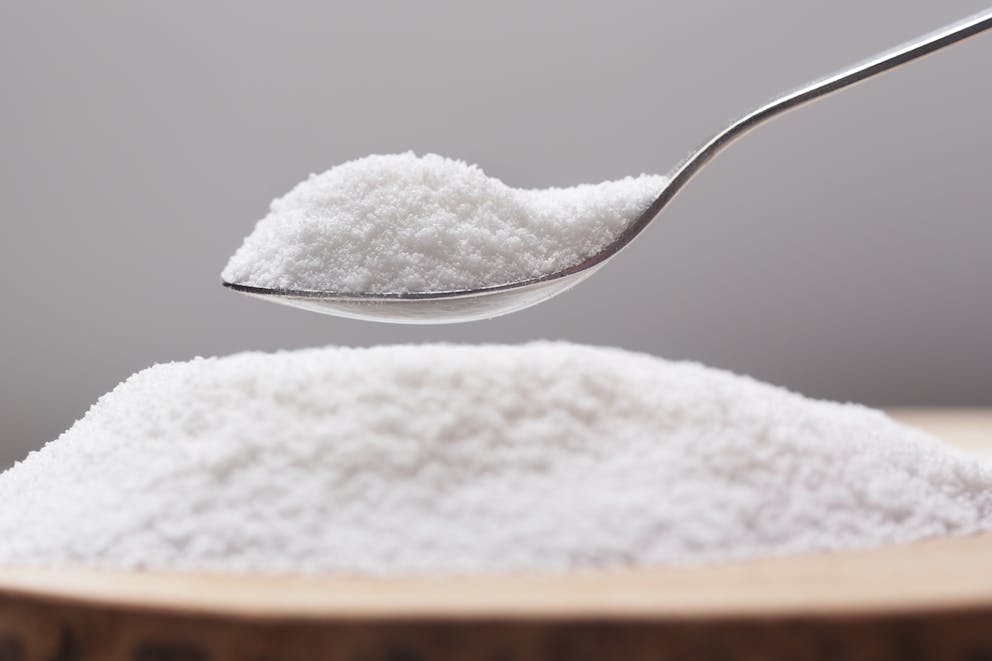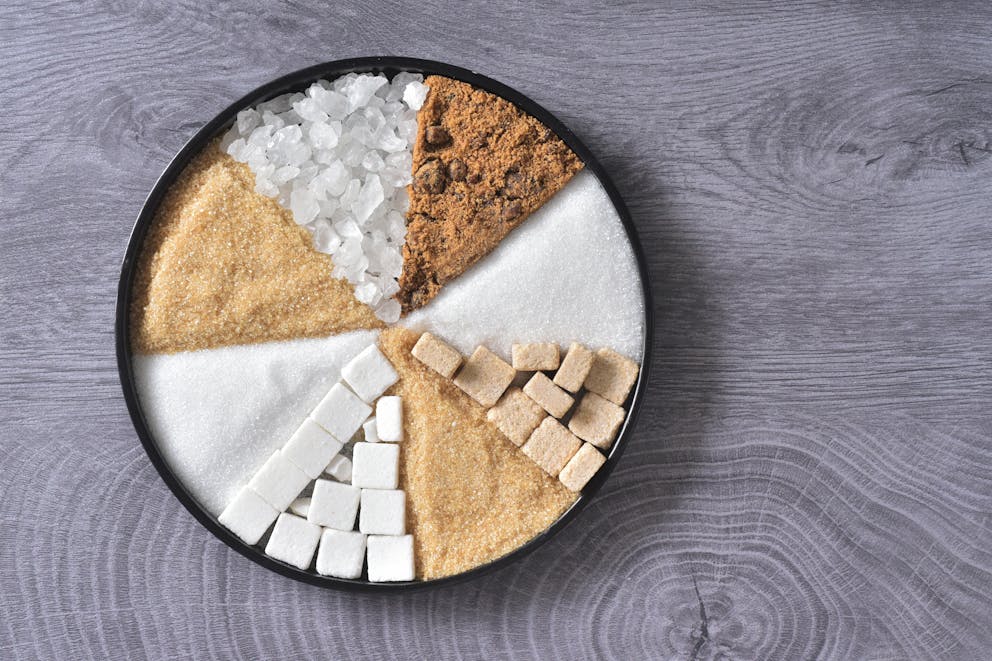Will Stevia Worsen Blood Sugars
Imagine a world where your sweet cravings don't sabotage your health goals—a realm where sugar substitute isn’t a phrase that raises eyebrows but opens doors to guilt-free indulgence.
So, let's talk about stevia - that mysterious champion in healthy living. The average American consumes about 17 teaspoons of added sugar daily, catapulting their risk for heart disease, diabetes, and weight gain skyward.
Now juxtapose this with stevia, a plant-derived sweetness that harbors none of those extra calories or adverse effects on blood sugar levels.
But here’s the twist: not all that glitters is gold. The journey from leaf to packet is fraught with choices—natural vs artificial, pure extract vs blend. It's akin to choosing between a maze of unmarked trails; each turn promises lush vistas or precarious cliffs.
Yet fear not! Today, we're slicing through myths like a hot knife through butter, armed with science and curiosity. Does stevia hold up its claims? Can it truly transform your health for the better?
Let's dive deep into this sweet mystery, examining facts over fiction to reveal the truth behind Stevia's promises.
Understanding Stevia and Blood Sugar Levels
Stevia is a natural sweetener used for centuries, particularly in South America. That sweet wonder actually comes from the leaves of a plant that is cozy cousins with sunflowers.
This zero-calorie sweetener has gained popularity recently as a sugar substitute, especially among those looking to manage their blood sugar levels.

What is Stevia?
Stevia, a natural sweetener from plants, packs a punch with its sweetness—imagine it being up to 300 times sweeter than your everyday sugar. It's extracted from the leaves of the Stevia rebaudiana plant, native to Brazil and Paraguay.
Indigenous people in these regions have used stevia leaves to sweeten beverages and treat various ailments for hundreds of years. Today, stevia is widely available as a sugar substitute in many forms, including liquid drops, packets, and granulated blends.
General Impact on Blood Sugar
One of the most significant advantages of stevia is its minimal impact on blood sugar levels. Unlike regular sugar, which can cause rapid spikes in blood glucose, stevia does not affect blood sugar similarly.
This is because stevia's sweet compounds, steviol glycosides, are not metabolized by the body like sugar.
Instead, they pass through the digestive system without being absorbed, making stevia a safe choice for people with diabetes or those following a low-carb diet.
Debunking Myths Around Stevia
Despite its growing popularity, some misconceptions exist surrounding stevia and its effects on blood sugar and insulin levels. Let's look at two common myths and set the record straight.
The Myth of Stevia and Hypoglycemia
Some people believe that consuming stevia can trick the body into thinking it's receiving sugar, causing it to release insulin and potentially leading to hypoglycemia (low blood sugar).
However, this is not the case. Research has shown that stevia does not stimulate insulin release or lower blood sugar levels. Research has shown that stevia might be a secret weapon in boosting insulin sensitivity and improving your body's handling of sugar.
Stevia's Non-Impact on Insulin Levels
Another common misconception is that stevia can cause a spike in insulin levels, similar to regular sugar. However, numerous studies have demonstrated that this is not true.
A 2010 study published in Appetite found that consuming stevia before a meal did not affect insulin levels or food intake compared to a placebo.
This suggests that stevia does not stimulate insulin secretion or increase appetite, making it a safe choice for those looking to manage their blood sugar.
Choosing the Right Stevia Product
Picking the right stevia product is crucial if you're aiming to enjoy its benefits fully without any unwanted extras messing with your blood sugar.
The Problem with Additives
Some stevia products on the market contain additives like maltodextrin or even sugar, which can negate the blood sugar-friendly properties of stevia. These additives are often used to improve the product's texture, flavor, or bulk.
Maltodextrin, in particular, has a high glycemic index and can cause rapid spikes in blood sugar levels. Therefore, it's crucial to read labels carefully and choose stevia products free from these problematic additives.
Opting for Plain Stevia
Opt for plain stevia extracts or powders to ensure you get the most benefits from stevia without any unwanted effects on your blood sugar. These products typically contain only purified steviol glycosides without additional fillers or sweeteners.
Remember that a little goes a long way when using plain stevia due to its intense sweetness. Start with a small amount and adjust to taste to avoid any bitter aftertaste that can occur with excessive use.
The Erythritol Connection
Erythritol is a sugar alcohol that's often paired with stevia in many low-carb and sugar-free products. While erythritol is generally considered safe, there are some factors to consider when choosing products that contain this sweetener.
Understanding Erythritol
Erythritol is a naturally occurring sugar alcohol found in small amounts in fruits like grapes and watermelons. It's also produced commercially through fermentation using certain types of yeast.
Like stevia, erythritol has a very low-calorie content and does not significantly impact blood sugar levels. It's often combined with stevia to improve the taste and texture of sugar-free products.
GMO vs. Non-GMO Erythritol
One important consideration when choosing products containing erythritol is whether the sweetener is derived from genetically modified organisms (GMOs).
Some erythritol on the market is produced using genetically modified corn, which may concern those looking to avoid GMOs in their diet.
To ensure you're getting a non-GMO product, look for certified organic stevia and erythritol blends or those labeled non-GMO.
Stevia as a Safe Sugar Substitute
In conclusion, stevia is a safe and effective sugar substitute that can be valuable for managing blood sugar levels or reducing overall sugar intake.
The Verdict on Stevia's Safety
Dr. Eric Berg, a renowned health educator, reassures that plain stevia is not bad for you and can be a beneficial part of your diet.
"Stevia is a natural, zero-calorie sweetener that does not raise blood sugar levels or contribute to other health issues associated with excessive sugar consumption," he states.
By choosing high-quality, plain stevia products and being mindful of any additives, you can enjoy the sweetness of stevia while supporting your overall health and well-being.

Sugar Substitute Showdown
In the quest for healthier alternatives to sugar, the debate between stevia vs sucralose has taken center stage.
Stevia, a natural sweetener derived from the leaves of the Stevia rebaudiana plant, is celebrated for its zero-calorie status and potential blood sugar benefits.
Conversely, sucralose, an artificial sweetener commonly found in various processed foods and beverages, offers sweetness without calories but is often scrutinized for its potential impact on blood sugar levels.
Delving into the nuances of stevia vs sucralose can provide valuable insights for individuals seeking to make informed choices about their sweeteners and their impact on blood sugar health.
Conclusion
So, here we are at the end of our sweet journey, armed with a newfound understanding of stevia and its gentle embrace of blood sugar levels.
We've sliced through myths like a chef's knife through ripe fruit, revealing the truth in bite-sized pieces that are easy to digest. The narrative around stevia has been as tangled as old headphone cords.
But together, we untangled it, finding that this natural sweetheart is indeed what it promises—a beacon of hope for those navigating the stormy seas of health goals without sacrificing their love for sweetness.
We explored not just the leaf itself but also navigated the murky waters surrounding additives and erythritol companionship—guiding lights ensuring you reach shores safely with your health intact.
At its core, opting for plain stevia isn't just a way to skip out on extra calories; it's really about taking good care of yourself.
It’s picking up your shield in defense against sugar's siren calls while still indulging in life’s sweeter moments guilt-free.
And let me tell you: when science serves up such delightful wisdom on a silver platter, embracing it doesn’t just taste sweet—it feels revolutionary.
As you stand at this crossroads between knowledge gained and choices yet made, remember that every sprinkle or packet is more than just a decision about what to sweeten your coffee with—it's a choice about which path to tread toward wellness.
So choose wisely because although we've reached our conclusion today—the story of how you use stevia? Well, that tale is yours to write from here on out.
Supporting Data
Previous blog
Key Nutrients That Prevent Hair LossNext blog
Cutting Calories but NO Weight Loss
Popular
08/21/2024
55.7K views
02/23/2025
46.8K views
11/18/2024
281.1K views
03/18/2024
11/21/2022




